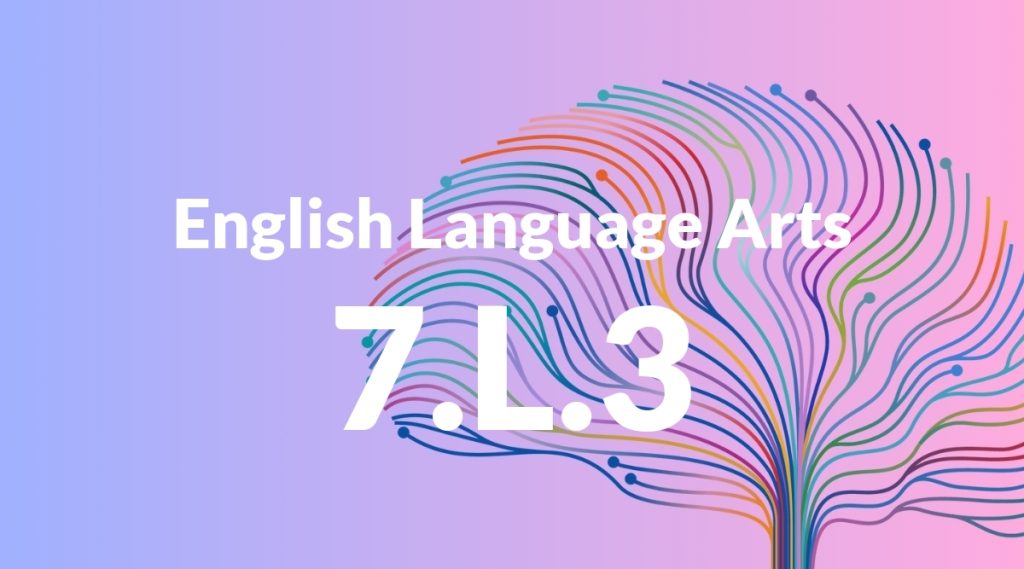Standard: 7.L.3 – Use knowledge of language and its conventions when writing, speaking, reading, or listening.
Grade level: Grade 7
Subject: English Language Arts
Domain: Language
Teacher Overview
This standard emphasizes the importance of understanding and using language conventions across various forms of communication. Mastery of this standard is crucial as it helps students communicate effectively and appropriately in different contexts, preparing them for more advanced language use in future grades. Students should have a solid grasp of basic grammar rules and sentence structures, and experience with both informal and formal language contexts.
After mastering this standard, students will develop advanced writing skills, the ability to analyze complex texts, and improve their public speaking and listening abilities.
Common Misconception 1
A common misconception is that formal language is only necessary in writing. This is incorrect because formal language is also crucial in speaking, especially in professional and academic settings.
Intervention 1
To address this misconception, provide students with examples and practice opportunities for using formal language in speaking, such as in presentations or debates.
Common Misconception 2
Another misconception is that grammar rules are not important in spoken language. This is incorrect because proper grammar is essential for clear and effective communication, whether written or spoken.
Intervention 2
To correct this misconception, highlight the importance of grammar in clear communication through role-playing exercises and peer reviews.
Prerequisite Knowledge
Students should understand basic grammar rules, sentence structure, and have experience with both informal and formal language contexts.
Subsequent Knowledge
Students will develop advanced writing skills, the ability to analyze complex texts, and improve public speaking and listening abilities.
Instructional Activities
- Practice writing formal emails and letters
- Conducting class presentations with peer feedback
- Analyzing the language used in novels and essays
- Engaging in structured group discussions




